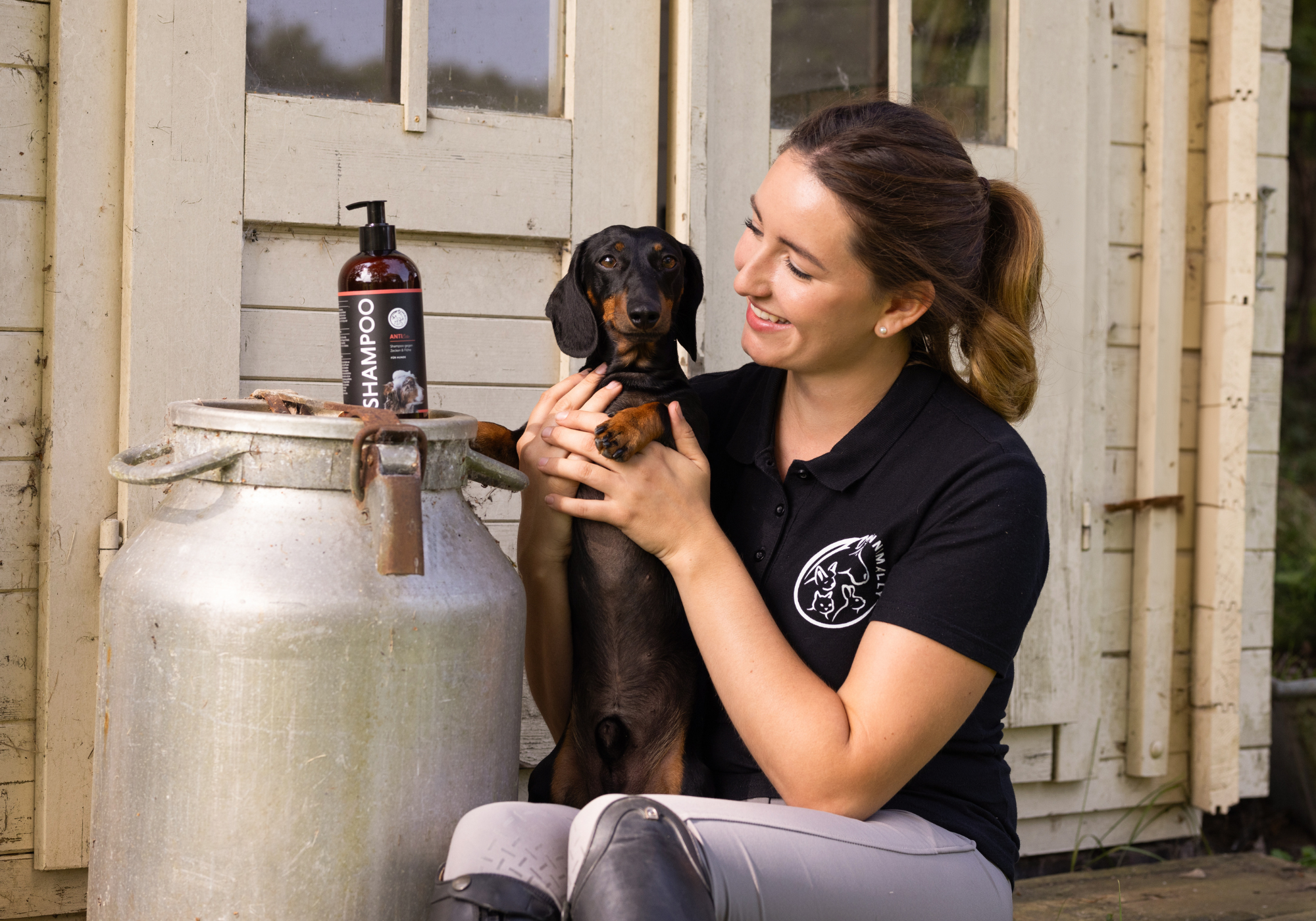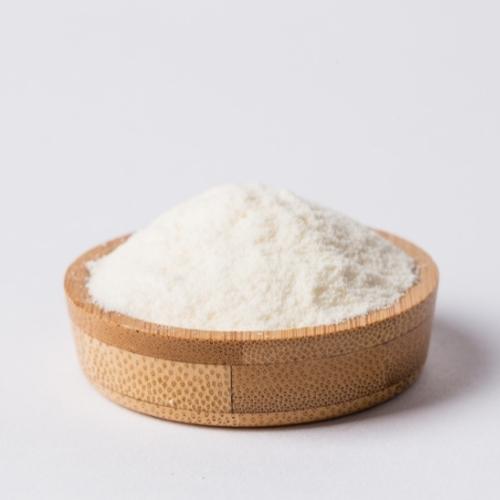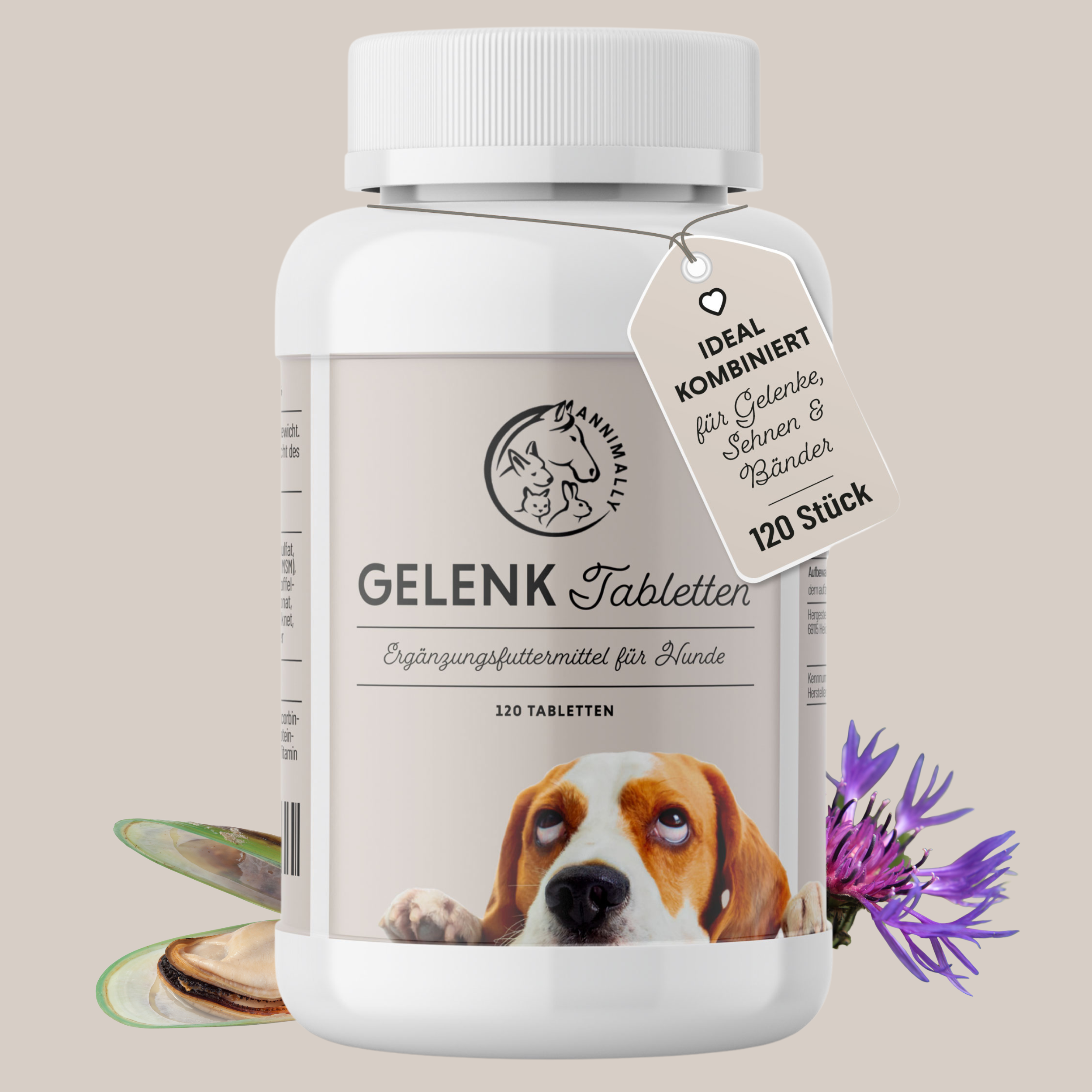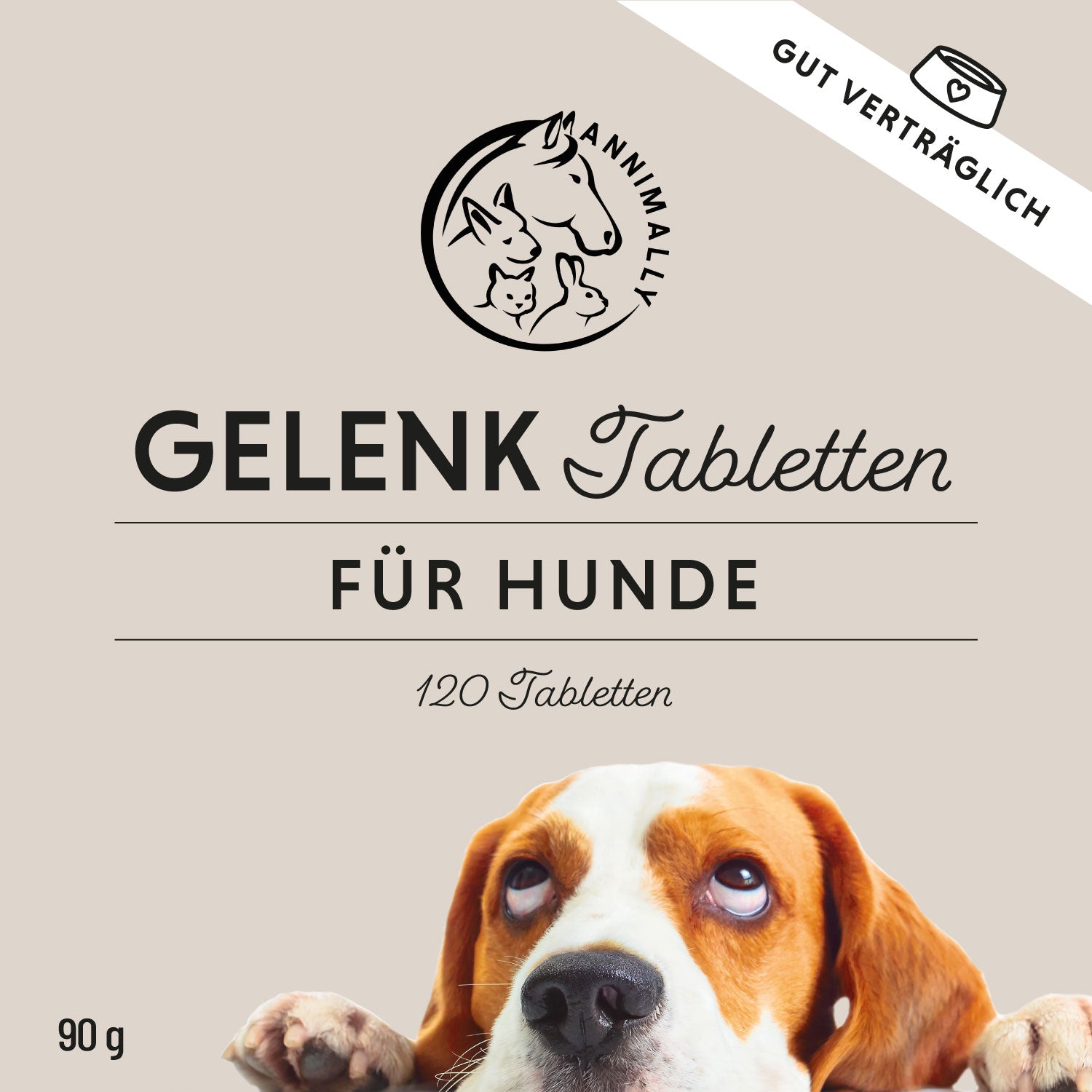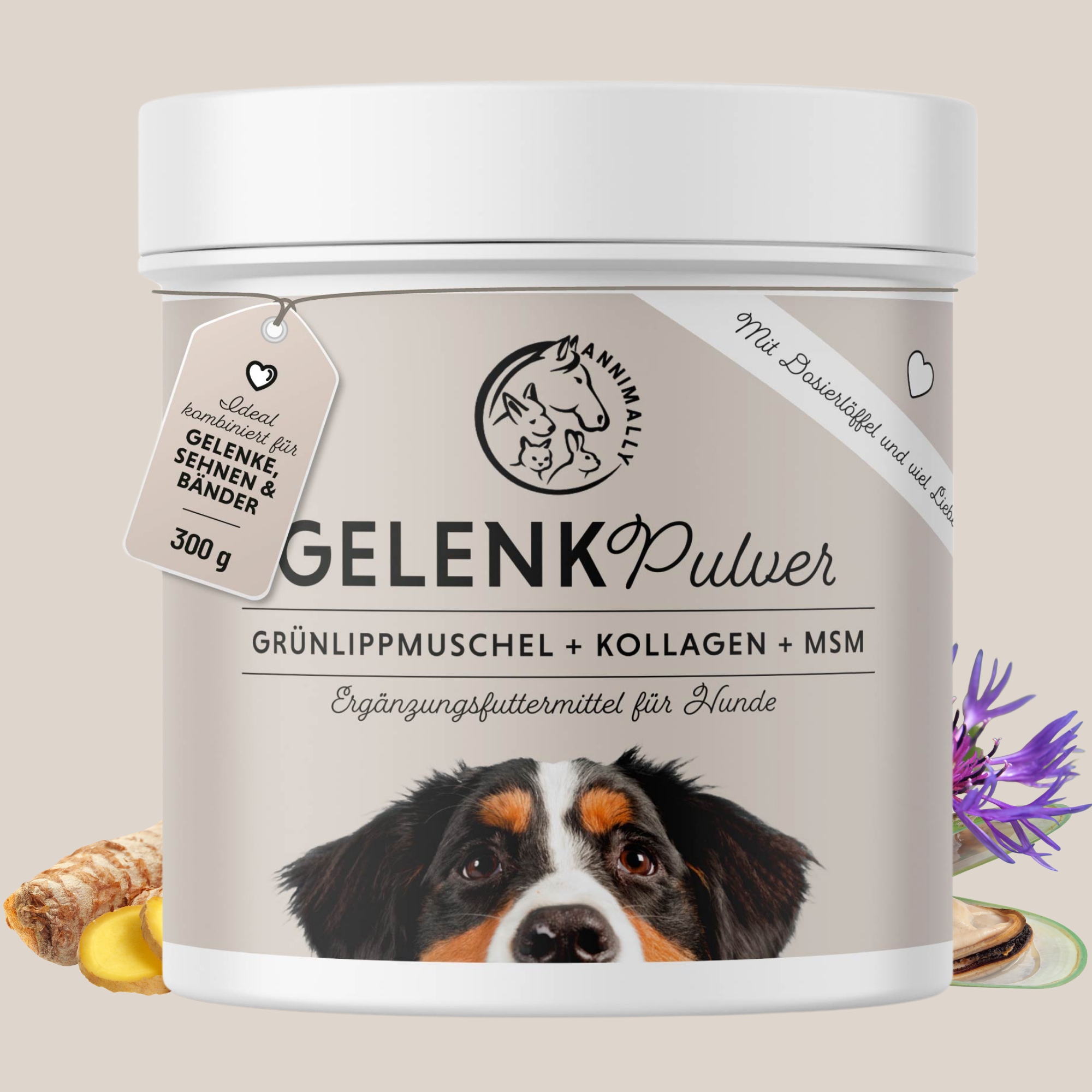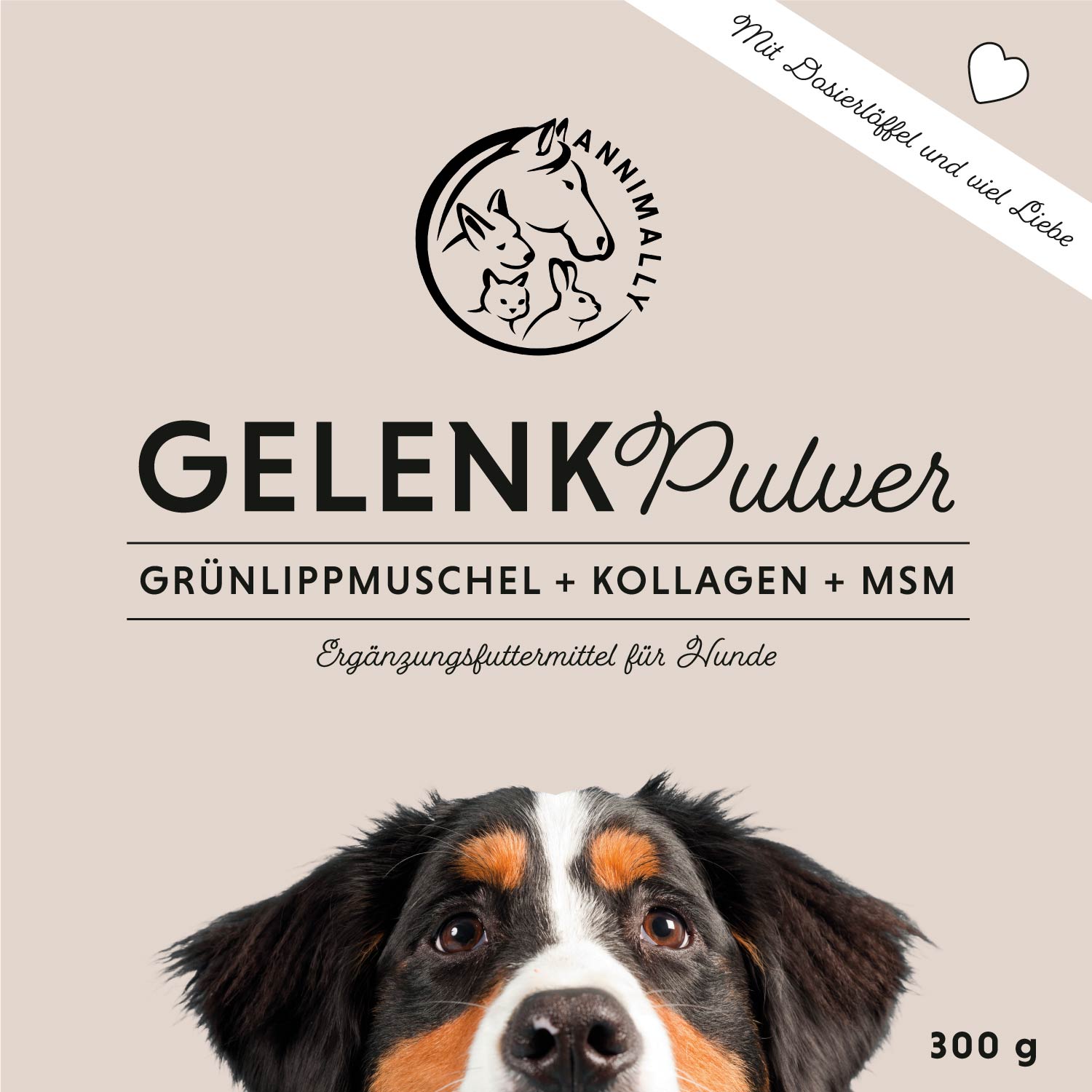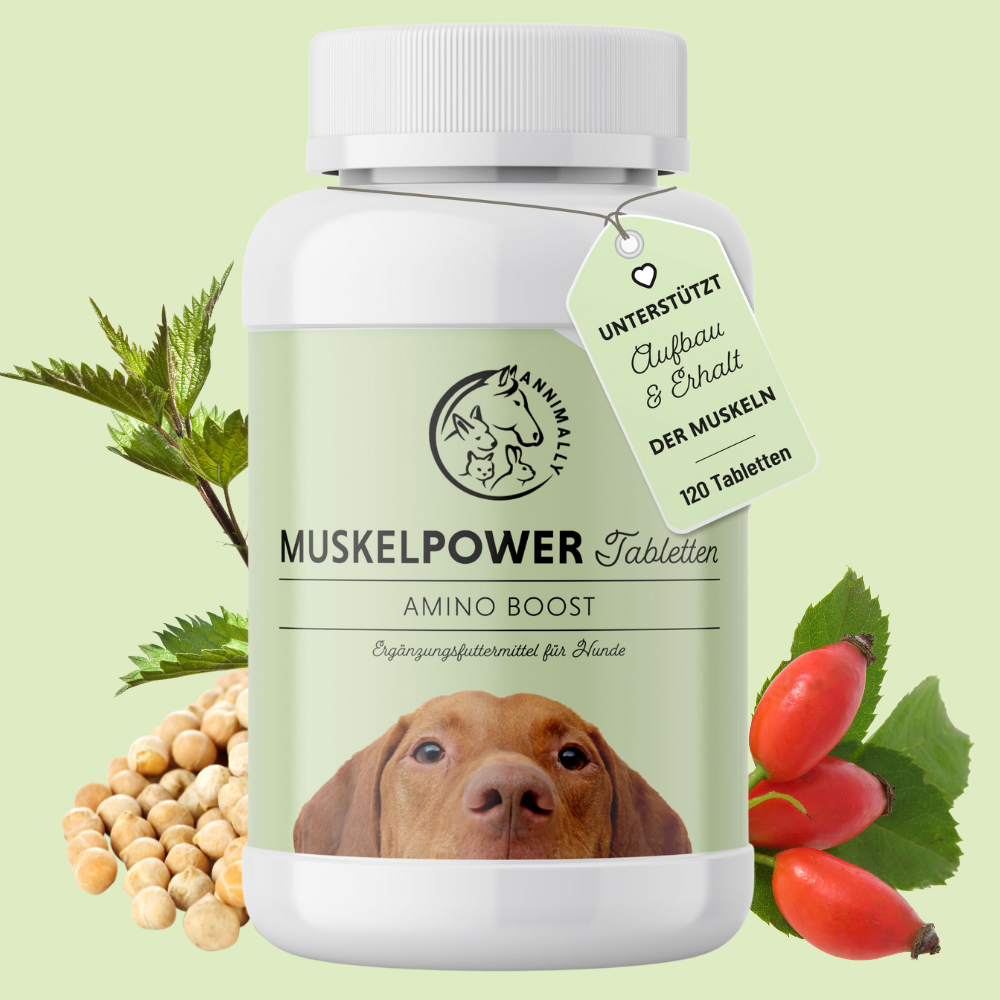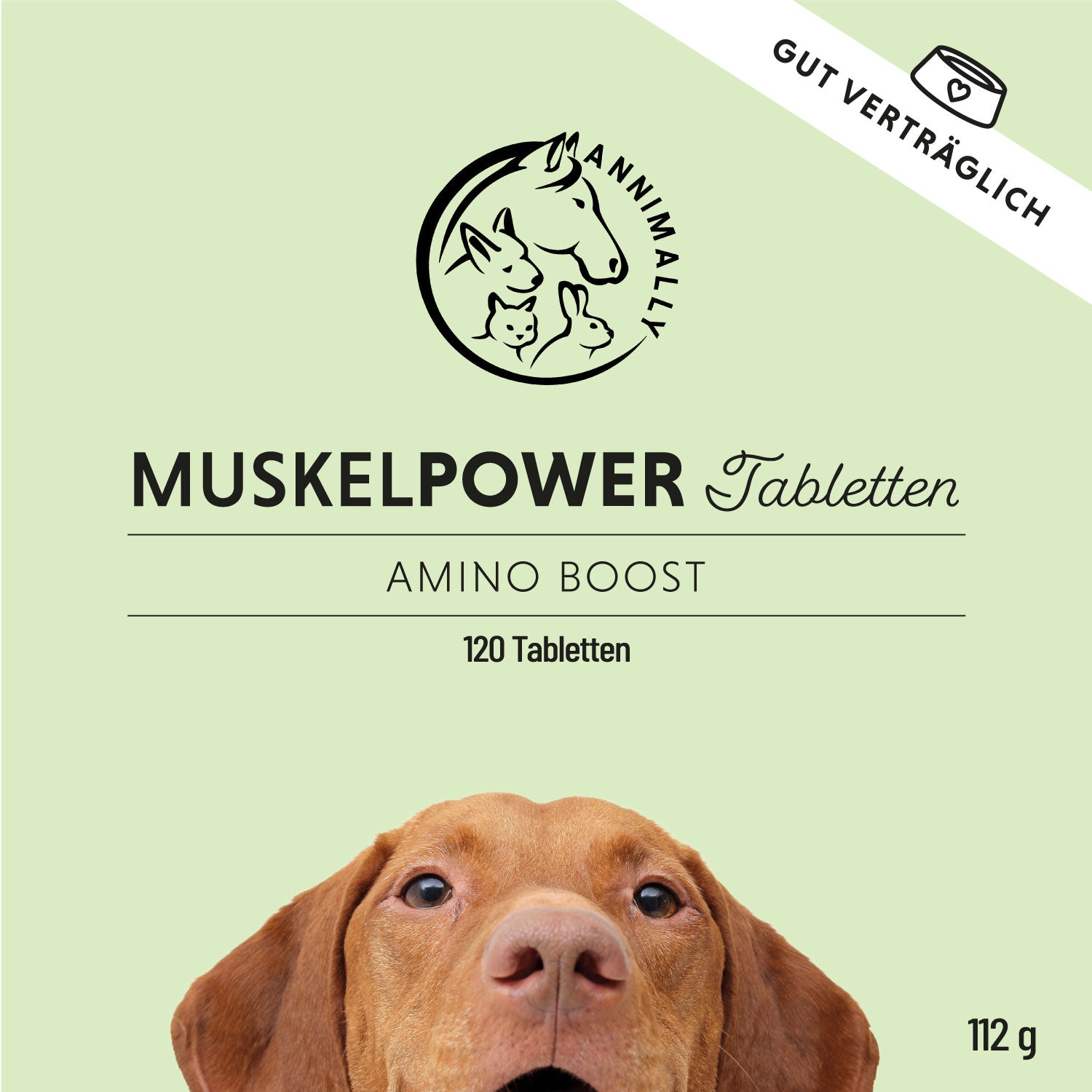Chondroitin for Dogs: Everything for Healthy Joints
Your dog's health is important to you – and joint health can become a challenge, especially as they age. Especially in larger breeds or dogs genetically predisposed to joint problems, age-related wear and tear and discomfort often become apparent.
A proven remedy for targeted joint support and protection against excessive wear and tear is chondroitin sulfate. This natural supplement can help relieve joint problems and slow cartilage degradation, allowing your dog to stay active and pain-free for longer.
Here you will learn in detail what chondroitin sulfate is, how it works, when it is advisable to give it, and how to choose the right product for your four-legged friend.

What is chondroitin and why is it important?
Chondroitin is a natural component of cartilage tissue and helps keep joint structures elastic and shock-absorbing. It can be a valuable supplement for dogs with joint problems, which often arise from wear and tear or genetic predisposition. It helps slow cartilage degradation and supports the regeneration of joint cartilage.
Why do dogs need chondroitin?
Your dog's joints are subjected to a lot of stress every day—whether running through the yard, climbing stairs, or playing with you. As dogs age, their body's natural production of chondroitin often declines, and their joint structures begin to suffer.
By giving chondroitin as a supplement, you can provide targeted support to your dog's joints and help him stay mobile and pain-free.
The signs that your dog has joint problems
How can you tell if your dog needs joint support? The following signs may indicate that he could benefit from chondroitin:
-
Your dog has difficulty getting up.
-
He hesitates to climb stairs or jump into the car.
-
Lameness and stiffness, especially after getting up or after a long period of rest.
-
A significantly reduced urge to move and general lethargy.
-
Pain when touching the joints or joint area.
How chondroitin works in dogs
Chondroitin supports the regeneration of joint cartilage and has anti-inflammatory properties. It helps improve the production and function of synovial fluid, which in turn lubricates the joints and facilitates bone interaction. It can therefore also reduce the pain associated with joint diseases such as osteoarthritis.
The combination of chondroitin and glucosamine: A powerful duo
Chondroitin is often administered in combination with glucosamine. While chondroitin prevents cartilage degradation and has an anti-inflammatory effect, glucosamine promotes the formation and repair of cartilage tissue. Together, they contribute to comprehensive protection of your dog's joints and relieve discomfort.
MSM and its role in joint health
In addition to chondroitin and glucosamine, you'll often find MSM (methylsulfonylmethane) in joint supplements for dogs. MSM is a natural sulfur compound that has anti-inflammatory properties and can improve the absorption of other active ingredients. Due to its anti-inflammatory properties, MSM is particularly helpful for dogs with chronic joint pain.
Benefits of Chondroitin for Your Dog's Joints
Some of the key benefits of chondroitin for dogs include:
Supporting joint health: It promotes good cartilage structure and contributes to mobility.
Relief of inflammation and pain: If taken regularly, joint inflammation can decrease and thus relieve pain.
Slowing down cartilage degradation: It protects the cartilage from wear and tear, which is especially important for older or very active dogs.
The right dosage: How much chondroitin does your dog need?
The amount your dog needs depends on various factors, including their weight, age, and health. Dosage recommendations are usually listed on the products themselves. Follow these instructions and, if in doubt, consult your veterinarian to ensure the dosage is optimal for your dog.
How to administer chondroitin correctly
Chondroitin is available in various forms: tablets, powder, and capsules. Most dog owners find the powder to be the easiest to administer, as it can simply be mixed into food. Capsules and tablets can be given directly or offered as treats.
How to recognize high-quality chondroitin supplements
There are many chondroitin products on the market, but not all are equally effective or of the same quality. Here are some tips to look out for:
Quality of ingredients: Chondroitin for dogs should come from a reliable source and be specifically formulated for dogs.
Without unnecessary additives: Make sure it doesn't contain any artificial colors, flavor enhancers, or preservatives.
Transparent origin: Products from Germany or the EU are subject to strict quality controls and are often safer.
Are there any side effects to be expected?
Although chondroitin is well tolerated by most dogs, some may experience mild side effects such as gastrointestinal upset. Monitor your dog closely during the first dose and consult your veterinarian if any unusual reactions occur.
Long-term benefits of chondroitin for older dogs
Chondroitin helps improve mobility and quality of life, especially in older dogs. Osteoarthritis and age-related joint problems can be alleviated through regular use. Chondroitin is also a valuable supplement for athletic or very active dogs, helping to protect their joints from wear and tear.
Complementary measures to support the joints
In addition to chondroitin, there are other measures that can promote your dog's joint health:
Exercise in moderation: Regular, gentle exercise such as walking helps keep joints supple.
Weight control: A healthy weight reduces pressure on the joints.
Warmth: Warming blankets and special beds can help keep joints supple, especially in older dogs.
Conclusion: Chondroitin for an active dog life
Chondroitin is a valuable component in supporting your dog's joint health. Whether combined with glucosamine and MSM or on its own, it can promote your four-legged friend's mobility and relieve pain.
If you choose a high-quality product and follow the correct dosage, chondroitin can be a great help in helping your dog live an active life even in old age.


